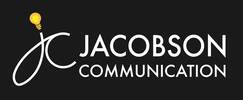|
Have you ever had a PR campaign that just didn't work? Are you planning a new campaign? Here's the top 8 reasons PR campaigns fail and what you should avoid. 1. You're Starting Too Late Do you have a story that has to "go live" this week? Next week? You're too late. Sure, you can try and see what happens, but you need to have sent out your stories at least two to four weeks in advance. Looking to get coverage in a print magazine, try three months or more in advance. Looking to get your new product/service on a major TV show? That could easily take 6 months of hard work and dedication. Do you have a holiday campaign coming up? Start in August or September. After that, it's too late. Starting with a new PR firm? Bring them on, at least a month before you need to start pitching anything. 2. Your Story Is Not Really News
Did your startup just get a new logo? Unless you're Uber or Apple, nobody cares. Get over yourself. A story has to include something new and noteworthy, as well as how it impacts customers, and the larger world. 3. You Chose the Wrong Hook If you're talking about your hot new algorithm, but fail to connect that to how it will save PC users billions of hours a year, you're doing it wrong. Consider the biggest impact your story will have on someone who does not care about your brand already. That is your hook. 4. You Don't Pitch Enough Reporters What's that you say? You pitched a whopping total of twenty reporters across publications like Forbes, The Wall Street Journal, TechCrunch, VentureBeat, Kotaku, The Verge, etc? That's ADORABLE! Good luck! This kind of strategy only works if you're already famous. Unless these reporters have told you when they will drop your story, don't hold your breath. You should be reaching out to hundreds of reporters (at least), and paying for a press release on one of the known distro sites to kickstart your story. Not sure how to contact hundreds of reporters? Hire a PR firm. 5. You Don't Pitch the Right Reporters Not every story is something TechCrunch will break to the world. If you have a "lifestyle" story, go to lifestyle-focused blogs, websites, writers, shows, etc. Consider who your customer is and what media they consume. Start there. Sure, pitch to TechCrunch too, but don't expect them to break the ice for you. 6. You Ignore Reporter Requests If you've pitched a reporter and they ask you for further information, an interview, images, etc., and you ignore them, or take several days to get back to them, you're missing out. You don't have to fly across the country for a tiny TV station interview with a viewership of 50 people (unless you want to), but you should have the decency to write back to reporters who ask this and more of you. If you don't have time, again, consider hiring a PR firm or a PR manager. 7. You Pitch at the Wrong Time Pitch early in the week, at a time that works for all time-zones. Don't pitch on a Friday and expect anyone to write same-day. Don't pitch at midnight. Don't pitch on a major holiday. Did a disaster just happen? Is something else consuming the news cycle. Hold your story for a few days if you have to. Wait for things to cool down. Then pitch. 8. Your Pitch is 100% Wrong Most people start here, but I've saved this one for last because everything else has to work, in order for the pitch to work. A good pitch: • Is short, and to-the-point, complete with supporting links, and no attachments. • Is sent at a respectful time of day, to the right reporter. • Is not typically sent randomly over social media (unless the reporter requests it). • Is not presumptuous, rude, or manipulative. • May follow-up on the same story once or twice, but no more, unless the reporter replies. In Conclusion Most failed PR campaigns occur because they ignored one or more of the steps above. Get these steps right, and your campaign will be much more successful. Comments are closed.
|
About the AuthorJennifer is a storyteller who connects big ideas with audiences. She specializes in public relations, brand development, and creative services for startups, theme parks, musicians, authors, nonprofits, and more. Archives
August 2025
|
About Jacobson Communication
|
Jacobson Communication specializes in public relations and creative services for growing niche brands, including startups, theme parks, musicians, authors, nonprofits, and more. From audience awareness to brand development, and positive social change, you'll be surprised what better communications can do for your brand.
A Word About Generative AI in Regards to
|
Land AcknowledgementAcknowledgement to the southern Lushootseed-speaking Coast Salish Indigenous Peoples whose land I live and work on.
This land also includes the traditional land and waterways of the first people of Seattle, the Duwamish People of past and present. It is with honor and gratitude to the land itself, the plants, animals, and the Duwamish Tribe that I practice my work. This land is also on and adjacent to the traditional homelands and waterways of the Puyallup Tribe. The Puyallup people have lived on and stewarded these lands since the beginning of time and continue to do so today. I recognize that this land acknowledgement is one small step toward true allyship, and I commit to uplifting the voices, experiences, and histories of the Indigenous people of this land and beyond. To learn more about the Puyallup Tribal Language program, visit: https://www.puyalluptriballanguage.org Personal StatementIt is my hope that we all deepen our understanding, awareness, and relationship to where we live in the world, and that we, individually and as a group, do our part to heal the wounds caused by genocide, enslavement, displacement, and other such atrocities, many of which have been intentionally carried forward into our present day and built into modern systems of power. Here is a list of books that might help you on your way to decolonizing the mind.
Copyright 2025 Jacobson Communication
|


